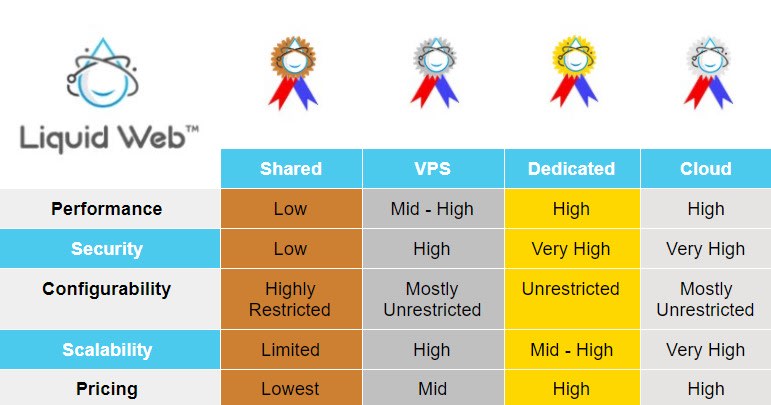Unleashing Your e-Commerce: Shared Hosting vs. VPS – A Detailed Comparison
Table of Contents
Running an e-commerce website can be an exciting venture, but it also comes with a lot of decisions to make. One crucial choice is selecting the right hosting solution for your online store – the foundation upon which your entire website will be built. Among the many hosting options available, two popular choices are shared hosting and VPS (Virtual Private Server) hosting. In this blog post, we will conduct a comprehensive comparison of these two hosting solutions, highlighting their pros and cons to help you make an informed decision for your e-commerce business.
Shared Hosting: Harnessing Affordability with Simplicity
Shared hosting is a cost-effective hosting solution that involves sharing a server with multiple other websites. It is an excellent choice for small e-commerce businesses or startups with limited budgets and technical resources.
The advantages of shared hosting are aplenty. Firstly, it is a budget-friendly option that allows you to keep your expenses to a minimum. As the server resources are shared among various websites, the costs are significantly reduced, making shared hosting an attractive choice for businesses just starting out.
Add to that, the simplicity of shared hosting makes it an ideal option for those who are new to website management or lack technical expertise. The hosting provider takes care of server maintenance, updates, and security so that you can focus wholeheartedly on your e-commerce website and its growth.
On the flip side, shared hosting does come with a few drawbacks. With limited resources allocated to each website, scalability may become an issue as your e-commerce business expands. In addition, the sharing of server resources can result in slower website performance, particularly during peak traffic periods. Moreover, since you do not have direct control over server settings, customization options may be limited.
VPS Hosting: Scaling New Heights with Increased Control
VPS hosting, on the other hand, offers a more robust and scalable solution for e-commerce websites that require higher performance and greater control. It combines the affordability of shared hosting with the advantages of dedicated hosting.
VPS hosting involves dividing a physical server into multiple virtual servers, with each VPS allocated its own set of dedicated resources, including CPU, RAM, and storage. This ensures that your e-commerce website operates independently and is not affected by resource limitations imposed by neighboring websites.
One significant advantage of VPS hosting is the enhanced performance and reliability it offers. With dedicated resources at their disposal, e-commerce websites hosted on VPS platforms can handle higher traffic volumes more efficiently, ensuring faster load times and improved user experience. Additionally, the stability of a VPS hosting environment minimizes the risk of your website crashing or facing downtime.
Furthermore, VPS hosting provides you with greater control and customization options. You have root access to the server, allowing you to tweak server settings, install custom applications, and personalize your website environment to meet your specific requirements. This level of control is particularly beneficial for e-commerce businesses with unique needs or for those looking to optimize the performance of their online stores.
However, it is important to note that VPS hosting comes with a higher price tag compared to shared hosting. Additionally, managing a VPS requires a certain level of technical expertise. You must be comfortable with server management tasks such as security measures, software updates, and troubleshooting. While VPS hosting providers offer support, the responsibility for server administration ultimately lies with you, which might be overwhelming for some e-commerce entrepreneurs.
Detailed Comparisons: Finding the Right Fit for Your E-Commerce Website
Shared hosting: With shared hosting, your website’s performance can be affected by the activities of other websites on the same server. During peak traffic times, resource sharing may result in slower load times for your e-commerce site. Additionally, if a neighboring site experiences a sudden surge in traffic, it could potentially impact the overall server performance and, consequently, your website’s responsiveness.
 Image courtesy of hub.liquidweb.com via Google Images
Image courtesy of hub.liquidweb.com via Google Images
VPS hosting: VPS hosting ensures reliable performance as the allocated resources are dedicated solely to your website. The independence of your VPS minimizes the risk of resource limitations and ensures consistent performance even when traffic surges. Your e-commerce website can handle higher volumes of traffic and workload without compromising on speed or performance.
Scalability:
Shared hosting: Shared hosting has its limitations when it comes to scalability. As your e-commerce business grows and demands more server resources to accommodate increased traffic or additional product listings, shared hosting may fall short. Your website’s performance may suffer, and upgrading to a higher hosting plan or server can become necessary.
VPS hosting: VPS hosting enables seamless scalability. You have the flexibility to allocate additional resources to your VPS as your e-commerce website expands. With fewer restrictions on resource availability, you can comfortably scale resources on-demand without worrying about potential performance issues. This scalability not only future-proofs your e-commerce business but also ensures uninterrupted growth.
Security:
Shared hosting: While shared hosting providers typically implement security measures to protect websites, there is a higher risk of security breaches due to the sharing of server resources. If a neighboring website is compromised, there is a possibility of your website being affected as well. Additionally, limited control over server configurations and software installations may impact your ability to strengthen security measures.
VPS hosting: VPS hosting offers a more secure environment for your e-commerce website. With dedicated resources, you have greater control over security configurations and can implement stricter measures to safeguard your website and customer data. Regular updates and patches can be promptly applied, reducing the vulnerability to potential threats.
Control and Customization:
Shared hosting: Shared hosting restricts your access to server settings and configurations. While hosting providers ensure that the server environment remains stable and secure, you may have limited control over specific settings. Customization options are often limited to what is provided by the hosting platform, constraining your ability to tailor your website environment to meet your unique requirements.
VPS hosting: VPS hosting grants you complete control over your virtual server. You have the freedom to modify server configurations, install custom software, and optimize settings to enhance performance. The flexibility and customization options available allow you to create a tailored hosting environment precisely aligned with your e-commerce business needs, giving you a competitive edge.
Conclusion
Choosing the right hosting solution is instrumental in optimizing the success of your e-commerce website. Shared hosting offers an affordable and hassle-free option for those starting out with limited budgets and technical expertise. On the other hand, VPS hosting provides greater performance, scalability, customization, and security for businesses seeking advanced features and robust offerings.
By considering the specific needs of your e-commerce website and analyzing the pros and cons outlined above, you can make an informed decision that aligns with your business goals and budget. Remember, your hosting solution lays the foundation for your online store’s success, so choose wisely and unleash your e-commerce potential.





